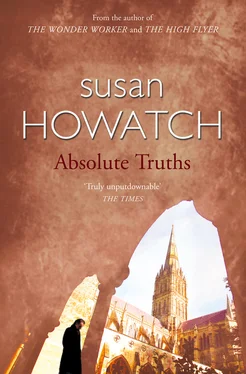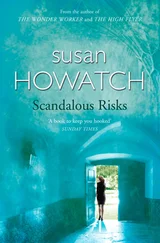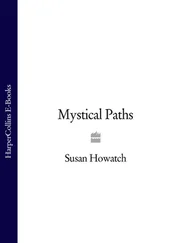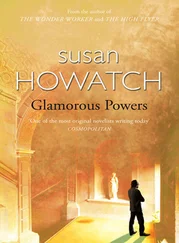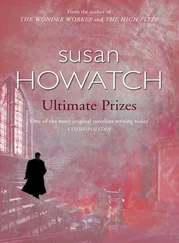‘I agree it’s a triumph,’ he said, ‘but it’s certainly neither modest nor spiritual. It’s a gargantuan triumph of the will fuelled by pride and self-deception, and all that’s really happening is that you’re passing off a spurious affability as a Christian virtue. Phrases such as “temperamental incompatibility” and “modest spiritual triumph” actually fail to describe or explain anything that’s going on here.’
I was baffled. ‘But Aysgarth and I are temperamentally incompatible!’
‘I see no evidence of that. You’re both intelligent men capable of strong passions and deep commitment. In fact I don’t see you as incompatible at all, temperamentally or otherwise – you’ve actually got a lot in common. You’re both well-educated men in the same line of business. You both enjoy fine food, good wine and the company of attractive women. You’re both devoted to your children.’
‘Yes, but –’
‘Your present attitude to Aysgarth says a great deal about your desire to behave like a good Christian, but very little about your desire to take the essential Christian journey inwards and examine your soul to work out what’s going on there. Perhaps if you were to take another look at the writings of Father Andrew, who was not only a modern master of the spiritual life but a man of immense humility and psychological insight …’
I did meditate on the passages Jon marked for my attention, but I regret to say I did not like Aysgarth any better afterwards. I could only redouble my efforts to treat him in the most Christian way I could devise.
It had been arranged that we should take the short service of matins together on that particular morning in February, I recited the office and leading the prayers, he reading the assigned passages from scripture, and when I entered the vestry of the Cathedral shortly before half-past seven I found he was waiting for me. I assumed that the three Canons had already taken their seats among the congregation in St Anselm’s chapel.
‘Hullo, Charles! Tiresome sort of weather, isn’t it?’
‘Very dreary. I hope it doesn’t snow and disrupt the trains.’
‘Going anywhere special today?’
‘Just nipping up to town for a committee meeting at Church House.’
‘Rather you than me!’
This concluded our opening round of pleasantries and was, as a golfer might say, par for the course. Aysgarth smiled at me benignly. When I had first met him long ago in 1940, he had been reserved, serious and not unappealing in his appearance despite that lean and hungry look which is always supposed to indicate an oversized ambition. Now, many double-whiskies and many sumptuous dinners later, he was stout and plain with a racy social manner which bordered constantly on frivolity. Being short, he was probably grateful for his thick hair which added a few precious tenths of an inch to his height. The hair was off-white and untidy, calling to mind the fleece of a bedraggled sheep. His blue eyes were set above pouches of skin in a heavily lined, reddish face, and his thin mouth, suggesting obstinacy, aggression and a powerful will, marked him as a forceful personality, someone who had no hesitation in being ruthless when it suited him. For some reason, which must remain one of the unsolved mysteries of sexual chemistry, women consistently found this tough little ecclesiastical gangster attractive. The phenomenon never ceased to astonish me.
As I took off my coat I carefully embarked on a second round of innocuous conversation. ‘How very kind of you, Stephen,’ I said, ‘to give Charley lunch yesterday.’
‘Not at all,’ said Aysgarth, following my example and toiling to be agreeable. I had thought he might make some comment on the lunch and perhaps even mention Samson, but he asked instead: ‘How’s Michael? Dido told me he came down to see you yesterday.’
I quickly moved to protect my Achilles’ heel. ‘Oh, Michael’s fine, couldn’t be better!’ I said, taking care to exude the satisfaction of a proud parent. ‘How’s Christian?’
Christian, Aysgarth’s eldest son and the apple of his eye, was a don up at Oxford.
‘Oh, doing wonderfully well!’ said Aysgarth at once. ‘I’m so lucky to have sons who never give me a moment’s anxiety!’
Instantly I grabbed hold of my temper before I could lose it, but it was still difficult not to shout at him: ‘Bastard!’ I knew perfectly well that Aysgarth was remembering Charley, running away from home, and Michael, being flung out of medical school, while the Aysgarth boys had journeyed through adolescence without ever putting a foot wrong. Aysgarth had four sons from his first marriage, all of whom were highly successful and utterly devoted to him.
‘Is Christian working on another book?’ I enquired politely, but I was unable to resist adding the barbed sentence: ‘I hope I’ll find it more original than his last one.’
‘Ah, but the influence of classical Rome on medieval philosophy isn’t quite your subject, is it, Charles?’ said Aysgarth, delivering this lethal riposte without a second’s hesitation. ‘If you’d read Greats up at Oxford, as I did, you’d find that Christian’s scholarship was more within your intellectual reach.’
The worst part about Aysgarth, as I had discovered to my cost in the past, was that he was a killer in debate. One entered an argument with him at one’s peril, but of course, as Jon would have instantly reminded me, I had no business getting into an argument with Aysgarth at all.
Fortunately the entry of the verger put an end to this serrated conversation, and when I was ready we were led silently through the Cathedral to the chapel where the daily services were held.
I could not help thinking that my visit had begun on a singularly unfortunate note.
Much depressed I prayed for an improvement.
The congregation stood up to greet us as we entered St Anselm’s chapel, and I saw that all three residentiary Canons were in the front row. The most senior was Tommy Fitzgerald, who had once confessed to me that Aysgarth was the only man he had ever wanted to punch on the jaw, and next to this normally unpugnacious Anglo-Catholic stood Paul Dalton, who had once told me he hardly knew how to face a Chapter meeting without having a nervous breakdown. On the far side of this normally stable churchman of the Middle Way was the newcomer to Starbridge, Gerry Pearce, whom I had selected for his staying power after his predecessor, a crony of Aysgarth’s, had decamped to London as a direct result of the 1963 crisis. Gerry was a moderate Evangelical who had spent some years as a missionary in an unpleasant part of the world before returning to England for the sake of his growing family; I had poached him from the Guildford diocese where he had passed five arduous years persuading the affluent middle-classes that there was more to life than making money in London. Coming from an affluent middle-class area of Surrey myself I was in a position to appreciate his achievement.
I did not care greatly for Tommy Fitzgerald, an unmarried fusspot who in his own way could be just as pigheaded as Aysgarth, but I liked Paul Dalton, who had read divinity long ago at Cambridge, just as I had, and who was so devoted to cricket that he seldom left his television set when a test match was being broadcast. Apart from a tendency to wander off the point in diocesan committee meetings, Paul’s most tiresome habit was to complain how difficult it was to remarry. Since his wife’s death he had tried hard to find a suitable replacement, but he had never found anyone who matched his rigorous specifications. Lyle said he did not want to remarry at all but merely felt obliged to go through the motions of pretending that he did, but having been obliged to listen to Paul’s confidential opinions on the subject I knew that unlike Tommy Fitzgerald he was not happy as a celibate.
Читать дальше
